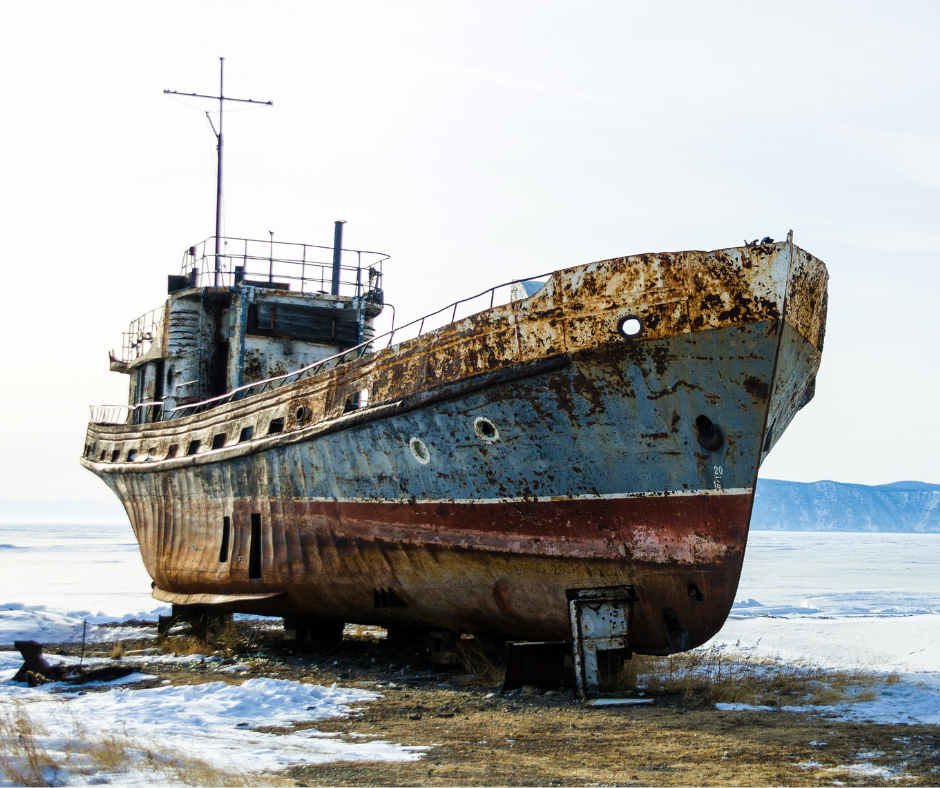5 min read
How do you stop a pirate? Put more fish in the sea.
By: Business Insider on May 24, 2023 at 8:00 AM

A new study on piracy revealed surges in "part-time pirates" are deeply linked to climate change. Fishermen in East Africa and the South China Sea turn to piracy when the fish supply is low and as climate change kills fish, the former fisherman grow more desperate in their attacks.
Turns out, climate change could be the reason behind increases in pirate attacks.
At least, that's what Bo Jiang, assistant professor of sociology at University of Macau, and Gary LaFree, professor of criminology at the University of Maryland, found in their study published last month in the American Meteorological Society examining the links between climate change and maritime piracy.
"The key in our finding is fish," Jiang told Insider. "In Singapore and in Southeast Asia, the pirates are known as "part-time pirates" or "standby pirates," because even on their little fishing boats, or pirate boats, they keep their fishing nets, and when there is no suitable target to be pirated, they are legitimate fishermen. But, if they are not able to catch enough fish to feed their family or support the village, they will resort to piracy."
Jiang and LaFree examined the two major global hotspots for maritime piracy for their study: the eastern coast of Sub-Saharan Africa and the Malacca Strait in the South China Sea. The Malacca Strait in particular, essential to international trade between Asia and Europe, is known as the most dangerous water in the world, Time reported, due to the risk of brutal pirate attacks, where ships are hijacked and their crew either killed or ransomed.
Between 1995 and 2013, Time reported, 41% of the world's pirate attacks took place in Southeast Asia.
"The subculture of piracy is not only condoned but encouraged by village chiefs who organize young, able-bodied men into pirates," Jiang told Insider. "They provide them with information on where the lucrative targets are, and predominantly they are doing this because of low fish catch production."
Jiang added: "But they drift in and out of piracy depending on the economic situation — as you know, their livelihood is dependent on the oceans. So fish is the main link between climate change and piracy in here."
As sea surface temperatures have gradually increased over the last 20 years, fish production in both regions LaFree and Jiang studied were impacted, though in different ways. The increasing water temperatures have benefited fish in the South China Sea, increasing production, but harmed fish off the coast of Africa, decreasing it.
"We were looking at climate change effects and had a bit of good luck in a sense, because we expected that sea surface temperature would basically be deleterious for all types of fish. Turns out it wasn't," LaFree told Insider. "So we have this really great experiment where we show that, essentially, when fish production goes down, piracy goes up. When fish production goes up, piracy comes down."
LaFree added: "At first I was somewhat skeptical because I figured climate change moved too slowly to pick up measurable effects on crime. So one of the surprises about this project is, even with 15 or 20 years' worth of data, we're picking up statistically significant differences in one type of criminal behavior."
In addition to the number of pirate attacks increasing with decreased fish production, the authors noted, the lower numbers of fish also correlated with an increase in a pirate's chance of being successful with their plunder — either stealing from another vessel or hijacking it for their own.
"The pirates become more motivated," Jiang said, the more desperate they are for fish.
The pair's findings may have wide-reaching implications for geopolitical policy, giving countries like Somalia and Singapore new information for how to address pirate attacks, though Jiang noted
"The big billion dollar question to ask is: how do we decouple the links between the pirates or fisherman's life being totally dependent on the ocean?" Jiang said. "If there's a decrease in fish production, what kind of government safety nets on land we can support them with so as to break away the linkage between committing a crime or not committing a crime depending on the circumstances."
Jiang proposed that countries with the highest carbon emissions, which have the greatest impact on climate change, should set up a loss and damage fund for countries to subsidize fishermen devastated by the effects on the ocean.
"Because otherwise, if we don't, we know they are going to turn into pirates, going around in their little fishing boats in the skiff and trying to charge attacks on fishing boats from Europe or from Asia."
Source: Business Insider
Related Posts
Fishermen Fight Off Pirate Attacks in Ecuador
Fishermen in Ecuador have taken matters into their own hands to combat pirate attacks that have..
Climate change raising incidents of maritime..
Climate change is raising the risk of extreme weather, causing food shortages and threatening the..
Fishermen robbed by suspected sea pirates
Four fishermen of Arcottuthurai who set out for fishing on Wednesday were robbed of their..



